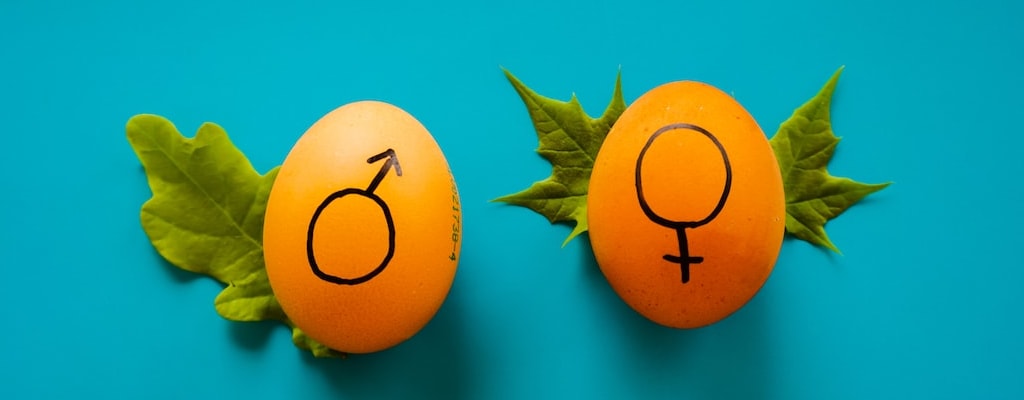daughter of Eve: Idiom Meaning and Origin
What does ‘daughter of Eve’ mean?
The idiom "daughter of Eve" refers to a female human being, often portraying her as a symbol of femininity and vulnerability. It is derived from the biblical reference to Eve as the first woman in the Book of Genesis.

Idiom Explorer
The idiom "lady garden" is a colloquial phrase that is used as a euphemism for the female genitalia or the vulva. It is considered a slang term and is often used in a humorous or light-hearted manner.
The idiom "Jane Roe" refers to a pseudonym used to protect the true identity of a person involved in a controversal court case or lawsuit, typically related to sensitive social issues. The name originated from the landmark abortion rights case Roe v. Wade in the United States.
The idiom "ice maiden" refers to a person, typically a woman, who appears very cold and unemotional, lacking warmth and empathy in their interactions with others.
The idiom "gunner's daughter" refers to a naval punishment where sailors were made to bend over a cannon to receive a flogging. It symbolizes being subjected to a severe punishment or reprimand.
The idiom "God's gift to women" is used to describe a man who believes he is incredibly attractive or desirable to women. It implies that he sees himself as a special or superior gift from God to women.
The idiom "give birth" means to have a baby or to bring a new life into the world.
The idiom "fruit of one's loins" is a metaphor that refers to a person's biological offspring or children.
The idiom "forbidden fruit" refers to something that is desired but prohibited or off-limits, often due to moral or societal reasons.
Mysterious Feminine Allure
The idiom "daughter of Eve" is not widely known or frequently used, but it is worth exploring its potential interpretations and implications.
One interpretation of the idiom is its connection to biblical references. In the Book of Genesis, Eve is described as the first woman created by God. By referring to someone as a "daughter of Eve," one might be emphasizing their association with femininity or womanhood. This suggests a direct link between the idiom and biblical imagery.
Another possible meaning of the idiom is its representation of female lineage or ancestry. Just as a daughter inherits certain traits from her mother, the idiom could be used to denote someone inheriting qualities associated with women. This highlights the notion of inheritance and the passing down of familial traits.
The idiom could also be seen as a way to evoke femininity or female identity. By using the term "daughter," the idiom emphasizes a familial relationship and establishes a connection to a specific gender. This usage may imply assumptions or expectations related to gender roles, societal norms, or cultural constructs surrounding femininity.
Despite the lack of concrete information about the idiom, its potential interpretations provide some insight into the possible meanings and implications. Whether through biblical allusions, notions of inheritance, or the evocation of femininity, this idiom suggests a complex interplay between gender, lineage, and identity. The exact origins and specific usage of the idiom may be elusive, but the various interpretations illustrate the richness and ambiguity of language and cultural expressions.
The idiom "daughter of Eve" is not widely known or frequently used, but it is worth exploring its potential interpretations and implications.
One interpretation of the idiom is its connection to biblical references. In the Book of Genesis, Eve is described as the first woman created by God. By referring to someone as a "daughter of Eve," one might be emphasizing their association with femininity or womanhood. This suggests a direct link between the idiom and biblical imagery.
Another possible meaning of the idiom is its representation of female lineage or ancestry. Just as a daughter inherits certain traits from her mother, the idiom could be used to denote someone inheriting qualities associated with women. This highlights the notion of inheritance and the passing down of familial traits.
The idiom could also be seen as a way to evoke femininity or female identity. By using the term "daughter," the idiom emphasizes a familial relationship and establishes a connection to a specific gender. This usage may imply assumptions or expectations related to gender roles, societal norms, or cultural constructs surrounding femininity.
Despite the lack of concrete information about the idiom, its potential interpretations provide some insight into the possible meanings and implications. Whether through biblical allusions, notions of inheritance, or the evocation of femininity, this idiom suggests a complex interplay between gender, lineage, and identity. The exact origins and specific usage of the idiom may be elusive, but the various interpretations illustrate the richness and ambiguity of language and cultural expressions.
The idiom "fruit of one's loins" is another phrase that can be related to the idiom "daughter of Eve." It is used to denote someone's biological offspring or children.
The phrase "exchange flesh" also shares a connection with the idiom "daughter of Eve." This phrase is often used to describe a sexual relationship or an intimate encounter between two people.
Lastly, the idiom "fair sex" can be related to "daughter of Eve." This phrase is used to reference women or the female gender in a poetic or literary context.
Example usage
Examples of how the idiom "daughter of Eve" can be used in a sentence:
- She was known for her beauty and charm, truly a daughter of Eve.
- As a mother, she wanted to impart her wisdom to her daughter of Eve.
- The young girl, full of innocence and curiosity, embodied the spirit of a daughter of Eve.
More "Gender" idioms



